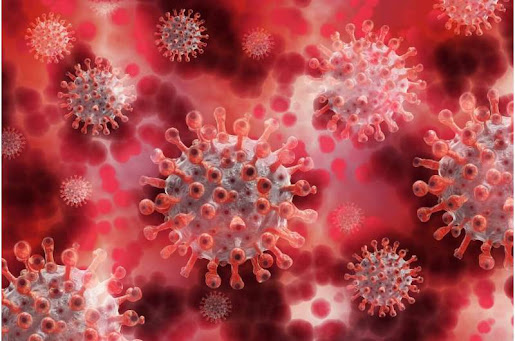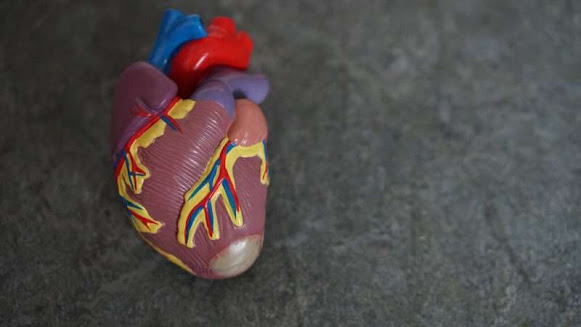Delayed recovery of consciousness is common for COVID patients on respirators
Delayed recovery of consciousness is common for COVID patients on respirators
Most patients with extreme COVID who are placed on ventilators recapture cognizance after expulsion of respiratory help, however recuperation might require a long time after the time of mechanical ventilation has finished, as indicated by another review by specialists at Weill Cornell Medicine, Columbia University Vagelos College of Physicians and Surgeons, Harvard Medical School, New York-Presbyterian and Massachusetts General Hospital. The investigation likewise discovered that patients took more time to recuperate cognizance the more they encountered episodes of low blood oxygen levels during treatment.
The discoveries, distributed internet based March 7 in the Annals of Neurology, ought to illuminate choices about existence supporting treatments for lethargic COVID patients.
"As we began to see the primary patients awakening after fruitful COVID-19 ICU medicines, we additionally experienced numerous patients who stayed out cold for a really long time and afterward recovered awareness to turn out to be completely arranged," said co-senior creator Dr. Nicholas D. Schiff, the Jerold B. Katz Professor of Neurology and Neuroscience in the Feil Family Brain and Mind Research Institute and co-head of the Consortium for the Advanced Study of Brain Injury (CASBI) at Weill Cornell Medicine and a nervous system specialist at New York-Presbyterian/Weill Cornell Medical Center. "While before we had seldom experienced such cases in related ICU conditions, we began to have 10 counsels a day like this across the two New York communities. We framed a gathering to attempt to get this remarkable peculiarity."
"In basic consideration medication, one of our principle errands is to exhort families about arranging in the occasion a patient doesn't recapture cognizance," said co-senior creator Dr. Jan Claassen, academic administrator of nervous system science at Columbia University Vagelos College of Surgeons and Physicians and partner going to nervous system specialist at New York-Presbyterian/Columbia University Irving Medical Center. "Our discoveries recommend that for patients with serious COVID, the choice to pull out life support ought not be founded exclusively on delayed times of obviousness, as these patients may ultimately recuperate."
In the review, the analysts directed a review examination of 795 patients who were hospitalized with serious COVID at three enormous clinical focuses New York-Presbyterian/Columbia University Irving Medical Center, Massachusetts General Hospital and New York-Presbyterian/Weill Cornell Medical Center-during the initial two floods of the pandemic. Every one of the patients had been on mechanical ventilation for no less than six days. Most were additionally positioned in a restoratively actuated trance like state while on the ventilator, however a few patients were at that point oblivious. After respiratory help was finished, the patients were surveyed day to day for the capacity to follow straightforward verbal orders to move their arms, a standard proportion of awareness.
Of the 795 patients, 72 percent made due and at last recovered awareness before release. For the individuals who made due, 25% recuperated awareness 10 days or longer after they quit getting ventilator backing, and 10 percent required 23 days or more to recuperate.
The analysts likewise took a gander at an assortment of variables that might have made sense of why a few patients took more time to awaken, including seriousness of side effects, level of respiratory misery, openness to analgesics or tranquilizers, and cerebrum injury. They observed that blood oxygen levels straightforwardly associated with the capacity and time to recover cognizance: the more low-oxygen episodes a patient encountered, the more they took to awaken. Patients who encountered the most episodes of oxygen hardship took the longest to recuperate awareness.
"These discoveries furnish us with more precise data to direct families who are choosing whether to proceed with life-supporting treatment in oblivious COVID-19 patients," said co-senior creator Dr. Brian Edlow, partner overseer of the Center for Neurotechnology and Neurorecovery at MGH and academic administrator of nervous system science at Harvard Medical School.
The discoveries were predictable across each of the three clinical focuses and during the first and second COVID waves.
Much of the time, imaging tests uncovered close to nothing, if any, proof of cerebrum harm, recommending that the long recuperation times were not because of stroke or dying, Dr. Edlow said. The scientists speculate that patients with postponed recuperation of cognizance might have entered a sort of defensive state in which cerebrum work is briefly decreased prior to reappearing.
"We've seen comparative peculiarities in intriguing patients with heart failure who were treated with hypothermia," Dr. Schiff said. "Hypothermia seems to safeguard heart failure patients from neurological harm in manners we actually don't comprehend. We're presently pushing ahead with studies pointed toward revealing
fundamental components of neuroprotection that could associate these two gatherings of patients."
However time to recover awareness was connected with episodes of low oxygen, expanding ventilator backing to raise blood oxygen levels doesn't generally help. The state of the patient's lungs might be keeping oxygen from arriving at the circulation system, and delayed ventilation would itself be able to cause lung wounds that compound hypoxemia.
The review didn't survey the patients' drawn out neuropsychological results. "Reassuringly our review shows that by far most of oblivious COVID patients recuperate awareness, yet it is critical to consider that we didn't check out at the nature of recuperation. That is something that should be the focal point of long haul follow-up investigations," Dr. Claassen said.
"At Weill Cornell Medicine, collaborations were conceivable in view of the extraordinary endeavors of Drs. Edward Schenck and David Berlin to assemble a complete data set for information from ICU treated COVID-19 patients," said Dr. Schiff. "Dr. Seyed Safavynia started to lead the pack working with their group to arrange a huge measure of data about these patients treated during the first and second floods of the COVID-19 pestilence."




Comments
Post a Comment